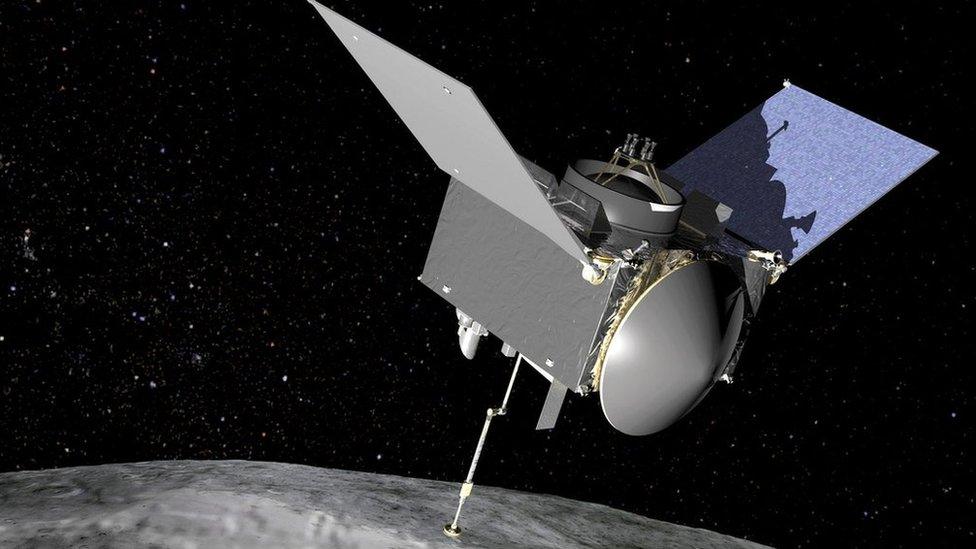Osiris-Rex: Nasa craft carrying asteroid dust begins trip back to Earth
- Published
- comments

Artwork: Nasa's Osiris-Rex spacecraft
A time capsule containing a sample of ancient rock and dirt that is 4.5 billion years old has begun its journey back to Earth.
Nasa has planned for its historic Osiris-Rex asteroid probe to return from outer space into the Utah desert in the US on 24 September 2023.
Its precious cargo of 60g of dust from the near-Earth asteroid Bennu is the largest sample collected since the Apollo Moon missions more than 50 years ago.
Scientists believe it may provide clues on how the Solar System was formed.
WATCH: Osiris-Rex successfully collects samples from Bennu asteroid (October 2020)
Nasa's Osiris-Rex started its two-and-a-half-year return journey from Bennu on Monday at 9.16pm (UK time).
The spacecraft launched in 2016 off the coast of Florida, US. Its destination: the asteroid Bennu, some 297 million km away.
Its historic "touch-and-go" sample grab from the ancient asteroid's surface in October 2020 lasted only a few seconds but left scientists very excited.
They hope the debris from this very ancient object will tell them more about how the Sun and the planets in our Solar System were created more than 4.5 billion years ago.
Samples saved for 'future generations'
Artwork: Osiris-Rex approaching the surface of Asteroid Bennu
Bennu, first discovered in 1999, is about half a kilometre wide at its equator and makes a close approach to Earth every six years.
With its cargo kept safe and sound, the spacecraft will circle the Sun twice so it can catch up to Earth and then drop its special capsule into Earth's atmosphere.
Once the capsule touches down in 2023, it will be taken to Nasa's Johnson Space Centre facility in Texas for further study.
Nasa says it plans on keeping 75% of the samples for future generations to study "with technologies not yet created".
If you can't see this guide, click here.
- Published7 May 2021
- Published20 April 2023
- Published6 April 2021
